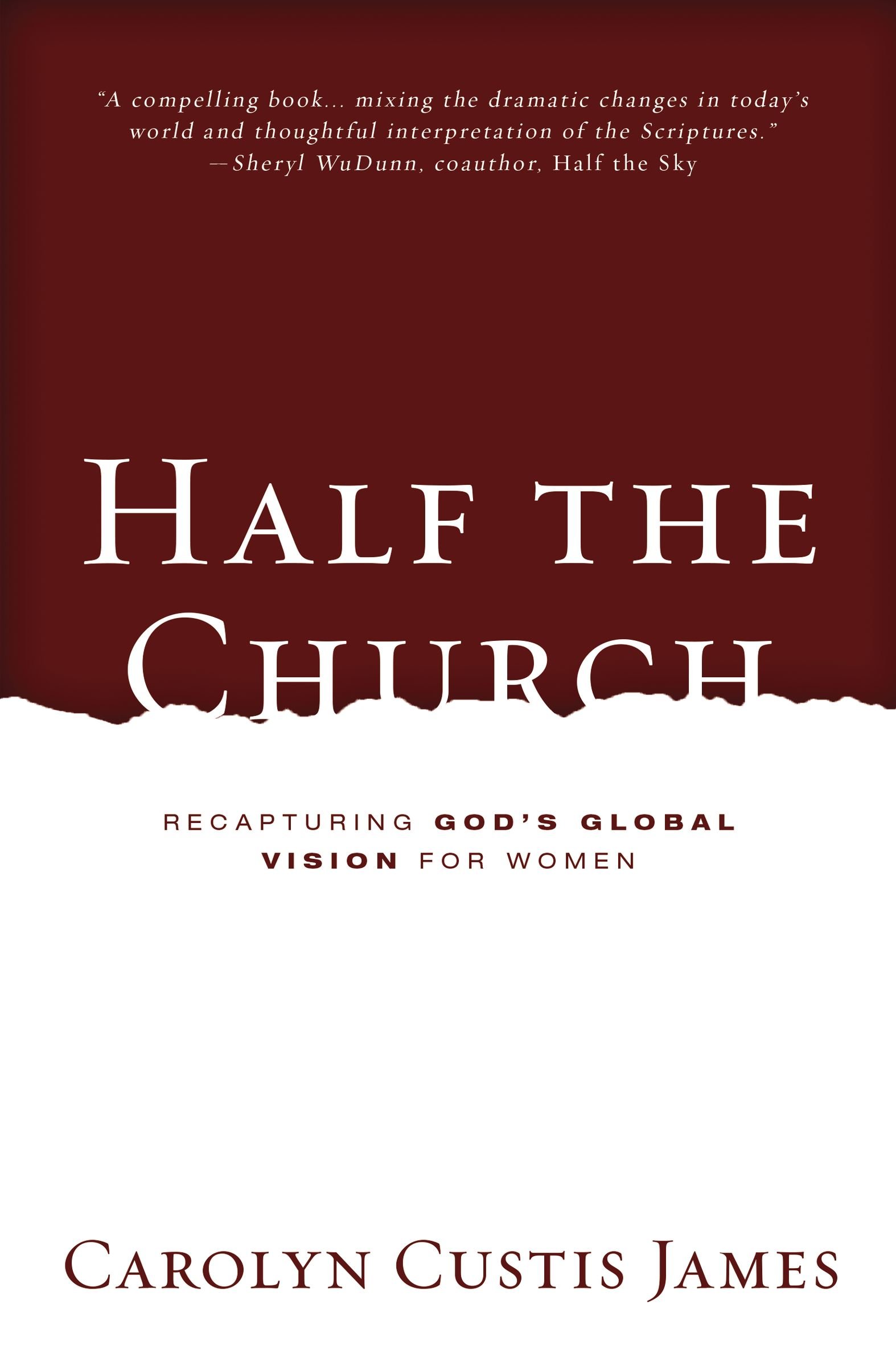“Taking initiative pays off. It is hard to visualize someone as a leader if she is always waiting to be told what to do.”
Comments during last week’s discussion of Lean In: The Ambition Leadership Gap were, as Pamela pointed out, “poignant…and so nuanced.”
Lori wrote, “Without ambition there is no drive or impetus for change, so I don’t believe it is bad.” To which Amy added,
“I’m all in favor of ambition if it means recognizing and embracing the gifts God has given you and where he has placed you, and reaching forward to do the most you can with that. I don’t see that as a selfish act. It’s a matter of stewardship and whole-life worship if we’re motivated by that and we’re reflecting God’s character in the process.”
I’m eager to hear your comments on this next chapter from Sheryl Sandberg’s book, Lean In: Women, Work, and the Will to Lead. So let’s dive into Chapter 2 on confidence or the lack thereof, reflected by whether or not women “Sit at the Table.”
Sandberg’s Take
Sheryl opened this chapter and also her TEDTalk with the story of a meeting she hosted at Facebook for Treasury Secretary Tim Geithner and four members of his staff—all women. As the mostly male attendees took their seats at the table, the four women chose chairs off to the side. Sheryl’s efforts to get them to move to the table were declined. She writes,
“The four women had every right to be at this meeting, but because of their seating choice, they seemed like spectators rather than participants.” (p.27)
Sandberg banks off of this example to explore a basic lack of confidence found more frequently in women than in men. Self-doubt results in pulling back instead of assuming (both mentally and physically) a rightful place at the table. According to Sandberg, self-doubt can actually become a self-fulfilling prophecy in how it negatively impacts performance and in how women assess and negotiate their financial worth.
“This phenomenon of capable people being plagued by self-doubt has a name—the imposter syndrome. Both men and women are susceptible … but women tend to experience it more intensely and be more limited by it.” (p.29)
She sees a lack of confidence reflected in how men and women talk differently about their successes—men pointing to their “innate qualities and skills,” and women attributing their success “to external factors” such as hard work, luck, and help from others. (p.29)
But pulling back is not a strategy for success, much less for advancement in the workplace. Taking initiative—”jumping in to do something … your ability to learn quickly and contribute quickly is what matters.” (p35) She goes so far as to advocate faking it until you get the hang of things.
To underscore her own struggle with self-doubt, Sandberg tells how she reacted with embarrassment instead of gratitude to the news that Forbes ranked her fifth on their 2011 World’s 100 Most Powerful Women list.
” … in order to continue to grow and challenge myself, I have to believe in my own abilities. I still face situations that I fear are beyond my capabilities. I still have days when I feel like a fraud. And I still sometimes find myself spoken over and discounted while men sitting next to me are not. But now I know how to take a deep breath and keep my hand up. I have learned to sit at the table.” (p.38)
My Take
Sandberg nails me in this chapter. She took me back to when I was about to graduate from seminary and trying to figure out what was next. I received a phone call (actually several) from the Dean of a small Midwestern Christian college who wanted me to consider becoming their Dean of Women. I was interested. Then he added that they also wanted me to teach some courses in sociology, my college major.
That was the moment I exhibited all of the symptoms of low self-confidence that Sheryl describes in this chapter. I figured (naively I admit) that I could handle being Dean of Women, although that part of the job would have come with a steep learning curve too. But teach sociology? In a college classroom? With real live students? Just the thought of it caused insecurities to break out all over me.
So instead of jumping at the opportunity that just landed in my lap, I walked away.
Looking back, I confess to feelings of regret. I have to be careful how I say that, because I met Frank at the church where I subsequently served on staff. Having said that I should add that if he’d been around at the time, I never would have gotten away with turning down that job.
Although not every woman suffers from a lack of confidence, there are plenty who do. It’s one thing to identify a problem, but until we zero in on the causes and address them, these problems will persist.
Sandberg identifies the reason I pulled back from a challenging job offer. My training didn’t match up with what the job required—at least I didn’t think it did. And for that reason, I didn’t feel qualified. My lacked of confidence kept me from accepting the challenge and taking a risk.
There are other underlying factors that contribute to a woman’s reluctance to sit confidently at the table. Certainly the fact that girls are often conditioned differently from boys both in the wider culture and also in Christian circles factors in. The false expectation that there will always be a man to protect and provide for a woman isn’t a recipe for building self-confidence, but automatically sets her in a lower gear.
And despite all the progress women have made in the workplace, there is still an unspoken assumption that we are invading male space when we arrive at the table. That can make a woman ill at ease and cause her to hesitate when taking a seat at the table. Sometimes that assumption gets reinforced by the dynamics around that table after she sits down.
Networking is all too often a missing piece for women, where it is second nature for men in business. It was completely absent for me when I was approached for that Dean of Women position. Having someone to talk to who knows the ropes and will back you is unquestionably a significant confidence booster. Just knowing you’re not alone can make a difference in how confidently you move forward. Simply picking up the phone and calling one of my college professors might have helped me over that lack of confidence hump. I didn’t even think of it. The Internet opens new possibilities for how networking can take place. We need to make more of these resources to help each other move forward.
The “fake it ’til you make it” approach may seem iffy to some. And to be sure there are limits to how that works. No one wants to go under the knife with a surgeon who is bluffing. But, on the other hand: do I have to master a subject or skill before I engage? What makes work both exciting and fulfilling is when we don’t have all the answers and have problems to solve, opportunities to create, new ideas to develop, and the chance to learn and grow and step into greater responsibility. Sometimes it takes getting in over our heads to tap into the potential that will otherwise lie buried in us.
As I think about this, I’m convinced God never intended for his daughters to do life with their foot on the brake or as passive spectators. The Blessed Alliance means we belong at the table with our brothers and, what is more, they need us to join them there. When we settle for a seat on the sidelines, we abdicate our God-given calling as his image bearers, and everyone loses.
“God means for his image bearers to reach and grow, to aspire and explore, to find out who he created us to be.” He regularly “pushes us out of the box, out of our comfort zone, out of complacency or resignation or defeat, out of contentment with ourselves and with things as they are—to engage and to live vigorously and deliberately for God’s purposes.”
So What’s Your Take?
How would you rank yourself on the confidence scale? What reasons have you observed for why women hold back and which ones have affected you? Do you agree that women struggle with this more than men? Why or why not?
How are you fairing with the challenge to “Sit at the table?”
Lean in with your comments!
Next Wednesday, May 15—Chapter 3: Success and Likeability
Previous Lean In Posts …
















I just stayed away from the table a few weeks ago. It breaks my heart with the reality of how many times I have stayed away – with hopes that my actions will have made enough of an impact, that my diligence will be called attention to by others, that my loyalty will be acknowledged … but it never is. And to get that recognition – I've got to be willing to move to the table.
As a Christian woman it was ingrained in me to let men take the lead and for them to get the praise for if I got the praise – there was that bossy girl always trying to get more attention. Even through seminary and after it was a constant push to get people to listen to me simply because I wasn't a man. So, the confidence has waned and the determination has faded. Faded so much to lead me from specific ministry work.
It is part of the struggle to balance how God made me and how the world rarely grasps what God has done. Am I just caught up in the talk of the world or ready to live in the beauty of what God has done?
LikeLike
Debby, I so agree with your observation that practicing low confidence compounds the problem. And Carolyn, I think you speak truth when you say that we need mentors to help us over the hump of self-doubt. I shudder when I think of all that I've left on the table out of homage to this imposter syndrome. It's just laziness. And frankly, pride and narcissism. I want to make sure that I won't fail in others' eyes or my own. Why? In doing this, I'm enacting a belief that my identity hidden humbly in Christ is insufficient for the task He's set before me…and that His power is not enough. This chapter convicted and challenged me.
LikeLike
“And despite all the progress women have made in the workplace, there is still an unspoken assumption that we are invading male space when we arrive at the table.” Carolyn, this statement speaks volumes! A couple of years ago I was at the table in a District meeting. It was the first time a woman had been invited to this inner circle. I was nervous and intimidated. But, I have this inability to keep quiet when I make observations. Hence, I opened my mouth and shared my perspective. After, I had finished speaking the Superintendant pointed his finger at me and exclaimed, “You just earned your ticket to the meeting.” I was mortified. It only reenforced the idea that I had to earn my place, where men were openly invited. What if I hadn't said something “profound”? Would I have been invited back? I think as women we do feel a need to have to continually prove ourselves and justify our existence in these settings.
I do think networking is huge. We must encourage and cheer our sisters and call out the talents we see. Again, to be at the table we have to be astute and quick at adjusting to a culture we have not had opportunities to observe. The faking it part does make me squirmy. However, if we could look at it as building another layer of skill as opposed to not having experience it might help us to be a little more bold.
All of this must be built on what is true of who we are in Christ. To be bold, I have to know deeply that God has created and called me to a work. Christ in me allows me to interact in ways that can only be attributed to His grace in my life. God will give all that is needed for the call on my life. Will I make mistakes? ABSOLUTELY! But, God can be seen and is that not the point of it all?
My leaning in really must come from God's call. I need the strength of God to speak and lead in my life so I can then proceed in confidence. This is a dynamic that requires lots of prayer and discernment and continues to humble me. Sandberg speaks to the reality of the workplace and a secular society. Knowing I am a Daughter of the King gives me the ability to be a true Ezer!
LikeLike
I do think it's hard to counteract those inner messages that, as Debby says, have been so deeply ingrained in us. But the urgency of doing this is alarming when we realize our struggles to sit at the table is a more benign form of discounting women (bad as that is) than more extreme forms we see in female gendercide, sex trafficking, and other more appalling forms this takes. We may not want to connect the dots, but they are connected. It all boils down to the value of a woman.
Which is why I'm so fiercely convinced that God's creation vision for his daughters in Genesis—image bearer, ezer-warrior, Blessed Alliance—is the message that we need. It undermines those negative messages and sends us to the table with the confidence that, not only do we belong there, but that God's strategy for getting things done in his world is disabled if we are absent or passively present.
God did say (without qualification), “It is not good for the man to be alone.”
LikeLike
Carolyn, Sheryl nailed me in this chapter, too. Without a doubt I am the one who will sit on the periphery, turn down the invitation to come to the table, and put my hand down instead of keeping it raised.
I am quick to excuse or explain away my accomplishments as being based on something other than my own merits. As a stay-at-home mom the last 8 years, many people don't even know I earned a Ph.D. It's something I rarely mention since I am truly uncomfortable with publicizing my success/merits/etc.
I have to admit much of my problem is based on fear, anxiety at how to balance family/work and lack of confidence, along with a healthy dose of perfectionism and self-criticism. At this point, I am feeling somewhat ready to pursue something outside of the home, but I am honestly paralyzed when I try to think about jobs/career paths in large part to the very issues raised in this chapter which so perfectly describe me.
In addition to the issues above, the paralysis is heightened by those stereotypical and harmful messages within Christian circles that a godly Christian mother should be at home with her children and should feel guilty/selfish for working outside the home.
Case in point – I recently read a book (lent to me by a friend) on Christian mothering. The question was raised in the Q&A at the end of the book: “As a working mom (and also the family bread winner) am I failing my children by not being home?”
The authors' response left me more than a bit angry at the lack of compassion, support, and the heap of judgement poured onto this working mother.
It begins: “Choices have consequences. Our children will become like the ones they spend time with and take on the values of those who validate them most. So, if you work and leave them in the company of others most of the day, they will naturally love and be like those with whom you leave them…If you must work, pray for God to give you ways to invest in your children and put them in the company of people who have your values…along with the use of the Mark 8:36 'What does it profit a man to gain the whole world and forfeit his soul?”
I am so thankful to be reading Lean In and also to have the maturity of a “seasoned” mother, as well as a more spiritually mature picture of just who God calls his ezer-warrior daughters to be so that I have a better context from which to dismiss the viewpoint above for what it truly is: damaging and incomplete, to put it mildly.
Had I been a young mother, fretting and needing/wanting to go back to work, reading that quote above may have crushed my ambition, confidence, or desire to do any paid work, volunteer work, community service or anything (!) that took me away from children for one second.
LikeLike
A few years ago, my husband and I were sitting in a membership class at a church we were thinking of joining. I asked several questions during that meeting thinking nothing of it. Later the head pastor turned to my husband commented on how his wife was very “strong”. I couldn't help but feel offended by his remark, perhaps I took it too far, but it seemed to be saying “my husband has his hands full”. We ultimately decided to not join and leave that church for many reasons but it was made clear that because of my gender my “call” was in child care and there was no invitation or ear to lean into the table.
This is where it gets tricky for me. I have seen so many woman passively retreat from the conversation of a woman's role in the church or if they are bold enough to speak they are surprised and crushed when authority (often men) reject them. This is where I tend to retreat. I don't think it is even a confidence issue I believe it is a “what's the use” issue. In reference to the church, I have looked on multiple church websites searching for a place where woman are allowed to sit at the table and find mission statements saying “we value diversity” but there are only male elders, leaders and deacons. I think there is more to this conversation than gender and men struggle with similar confidence in the work force and the church but perhaps that is another conversation.
LikeLike
I must add, that my fears to lead or step to the table go beyond my time working in the church. They occur now in the business world. A world in which I see moments of change, but those changes are hindered by me in my disbelief of my skills or talents to pursue further development and engagement. Those disbeliefs are the ingrained messages against which I fight. The business world likes my skills and talents. I'm having to come to grips with the idea that one can be an ezer-warrior not just in the church or at home. But if this is our Father's world that role is needed everywhere we step foot.
LikeLike
I was struck by this comment:
“Certainly the fact that girls are often conditioned differently from boys both in the wider culture and also in Christian circles factors in. The false expectation that there will always be a man to protect and provide for a woman isn't a recipe for building self-confidence, but automatically sets her in a lower gear.”
I have a son and three daughters all not yet teens. I can't count the number of times people have commented to my son what a BIG responsibility he has taking care of his sisters. Yet no one has ever asked my girls if they have any responsibility towards their brother.
My son keeps tormenting his sisters. I asked him why the other day. His response? Because he was jealous that there was no one to “take care of him”.
Forgotten is the life-lesson of getting along with siblings and the opposite gender. Isn't that what a child should be learning and not being handed a weight of responsibility that comes from where????
LikeLike
Those negative messages are truly hard to shake, once they lodge in our minds. It's hard to function when you're walking on eggshells, hearing loud hints that you are hurting your family, that you just might be too strong, or simply trying to adjust to being valued while you're still hearing those thoughts.
And Tanya, your son's frustration with the messages hearing are spot on. Men and women/brothers and sisters are to look out for each other. God didn't create the women to be more work for the man, but to share in the work God entrusted to them both.
But when the message is hurtful for women/girls—meaning, you need someone to take care of you—it's also hurtful for men/boys.
LikeLike
The comment that Pamela made ” In doing this, I'm enacting a belief that my identity hidden humbly in Christ is insufficient for the task He's set before me…and that His power is not enough” is a wonderful whack on the head for me. Thank you, Pamela
I am in a situation where my husband is the head of the elders but won't publicly support me. At times it baffles me, other times it infuriates me. I have made my views known to the leadership and been politely ignored. It's kind of like when the parents on Peanuts talk – all the kids hear is noise.
I started a blog to address some of our church specifics (w/out identifying people or church) but have been wary of sharing it with other women at church in fear of being accused of gossip. I broached this subject sideways with one of the women ministry heads and she started to cry saying I was not supporting her work. This I did not expect.
I did show it to the head of the elders who had no interest. I am looking for opportunities to get over my fear.
Something I am very curious about – this is a church plant – strives to be very hip – not 'your dad's church' etc but they have the exact view of women as their fathers. It probably doesn't help that both the pastors have fathers who were pastors. The thing that perplexes me is that they are so young – under 40 – yet persist in these prejudiced behaviors. I have looked on the web at other church plants and the vast majority have the same flavor – no women pastors or elders. What is the story here?
LikeLike
This chapter resonated with me, as well. I can’t count the number of times I’ve hesitated to sit at the table, or even raise my hand! I started out as one of the “bossy” girls, but over the years I’ve watched my voice become quieter and quieter as I’ve assimilated cultural and environmental messages about what behavior is appropriate for women. I’m on a purposeful quest now to reawaken that voice. I was very encouraged to read Sheryl’s experiences and see how she has struggled with similar internal voices.
I appreciate Pamela’s comments about a reluctance to fail in front of others or ourselves. I know that when I compare my own attitude of failing publicly to my husband’s perspective, I see a big difference. His attitude is that failing in front of others is just part of taking risks and pursuing opportunities, and he has a certainty that even if he fails, he will have more opportunities in the future. When I talk with other women, and Sheryl made some allusions to this, too, it seems that women are more likely to believe that one failure will close the door (perhaps permanently) on all future opportunities. I’m not certain where this comes from, although I think an attitude of scarcity is part of it. Women have typically/historically had fewer opportunities, so we’ve developed a belief that a scarcity of opportunity is permanent.
I’ve been a leader in both the church and secular settings and while there are certainly parallels between the challenges faced by women pursuing influence within those spheres, I’ve found the church environment to be doubly challenging. When the business world tries to convince me that women aren’t capable of some roles based on their gender, it’s only my career that is at stake. When the church declares I’m incapable of leading or having influence because of my gender, what is at stake is my identity before the Lord and my ability to reflect His image. I’ve taken great comfort in the picture of Mary sitting at the feet of Jesus. I love that she didn’t wait for someone to invite her to the table. She put on her ezer courage and walked into the room and sat down, just as though she belonged there. (Perhaps there was a little “faking it ‘til you make it” here, with her actions expressing more courage than she might have felt? Who can say for sure.) When Jesus publicly confirms the “rightness” of her choice, I feel my own courage expand a bit.
LikeLike
Beautifully said, Crystal. Makes my heart ache and beat a little stronger at the same time.
LikeLike
I really resonated with chapter 2 because I've struggled with feeling like an impostor for much of my career, which is now in its 4th decade. By God's grace I've attained a level of success despite my inner anxieties. When I've counseled young women who struggle with the “impostor syndrome” I tell them to trust the confidence others have in them in those moments when they can't trust their own abilities.
I think the church's ambivalent message about women's roles is one big cause of the self-doubt that plagues Christian women. Secondly, I had to learn how to communicate with men in order to take my place when I was the only woman “at the table.” And there are communication skills to learn once you're at the table.
LikeLike
Sheryl's college experience matches mine – sub par public school education skyrocketing to an ivy league type school and certainly not prepared. In spite of all that, I did not lose confidence and simply felt like I needed to work harder, and I did. I actually believe women are telling the truth when they said their success is attributed to hard work and help from others. It's the men who are lying. Lol! Finally, I am not a fan of the “fake until you make it philosophy.” It's a bad philosophy for everybody but certainly for women. Since there are so few women in the environments that Sheryl describes, it is extremely important that the “present” women are competent. We need to get smart and quickly. We need to be honest and resourceful. I'm not shy about what I don't know; therefore, I ask a lot of questions. I've always said, “I don't have to have all of the answers; I just need to know where to go to get the answers that I need.” Competence breeds confidence.
LikeLike
Jodi, many years ago I heard the same messages as you and started a website entitled, http://www.christianworkingmom.com to support Moms who work in and outside the home. The series is speaking volumes to me. I have to share a painful time when I did not raise my hand. I was on a youth pastor search committee and we were picking a chairman for the committee. In the final vote it was a tie between me and a man. We voted again and I didn't vote for myself, because that seemed arrogant or pushy. The man won the position by one vote. I feel even guilty sharing now that I was the one more prepared or fit for the position, but I didn't think it was appropriate. It is so hard to follow where God leads when so many obstacles are in our way, the way we view ourselves as women leaders in the church and how men view us as well.
LikeLike
We were discussing “attribution theory” in grad school way back in the last millennia! Sad to me that it is still holding true that men tend to feel success is due to intrinsic capacities and failure is circumstantial bad luck, while women feel that success is due to circumstantial good luck and failure is due to intrinsic lack of capacity. The truth is a bit of all four conclusions are true for both genders in most cases. Nevertheless, the implications are significantly different . If a woman believes failure is wholly her own fault, she “owns” it in a much different way than the man who says, “It was just bad luck.” He will easily try, try again whereas she will think long and hard before risking such a personally diminishing failure again. Yet, as my husband, the Executive, is prone to say, “Good decisions come from experience and experience comes from bad decisions.” No failures almost ensure there will be no growth and no growth almost ensures no informed good decisions.
The biggest secret here is “knowing yourself” well — your individual gifts and talents and skills — the way God has wired you; then put yourself at a table where those qualities can grow and contribute and shine forth. Men may get invited more easily but they often have to earn the right to STAY at the table through a manifestation of competence. In my experience, most leaders don't want to “waste” any of the seats there — if someone doesn't contribute somehow (though the contribution may not be what s/he says), s/he's taking up space others are waiting to occupy. So when a woman knows herself well and gets invited to a table where she can learn something useful and contribute something meaningful, sitting up straight at the table is an act of worship and thanksgiving for the Creator who wired her that way. I typically head for the center sides myself when I'm not up front actually conducting the meeting — I can read all the body language better that way and everyone will hear me clearly without my shouting when I speak up! 🙂
LikeLike
Carolyn, one other thing I must say, given some of the earlier comments: it has always seemed to me that rearing children is a blessing for a “season” – a wonderful privilege, to be sure, but, given modern life expectancies, not a full time lifelong career. Assuming I don't have a dozen kids or one with long term special needs which certainly changes the timeline, typically if I performed my mothering role REALLY well, the children will grow up into adults relatively quickly and I will have worked my way out of that season's responsibilities still a fairly young woman. So what then? Nothing is sadder to me than the woman who is devastated when the kids head off on their own. I thought that was the goal! But starting from scratch in the workplace is not easy. So, while I was admittedly able to arrange my professional ambitions and opportunities in such a way I could largely control my schedule (but I worked very hard at doing that!), I always, always, always kept learning and growing in my professional track the whole time I was in the child rearing season. It may have been as simple as subscribing to a professional magazine and reading it to keep up with the trends; it may have been finding volunteer situations to “test” my growing skill set. Whatever I could do to “stay at the table vicariously” I did it. It kept me sharp and taught my children that I had an identity in addition to “Mom” — not a better identity or a worse one – an additional one! My 36 year old daughter now is doing the same thing while rearing her 5 and 8 year old daughters. And my 33 year old son always gets the biggest kick when a professional colleague of his finally realizes that the consultant who just conducted the meeting at their office is not just a professional colleague and friend of his — she is also his mom! Sometimes they don't figure it out — they just know both he and I belong at the table based on our individual competencies. I'm just sayin'… staying home for a season is one thing; hiding out there permanently is quite another and I don't think God is going to let us use the children as an excuse in the latter case when we have to account for what we did NOT do with the gifts He gave us.
LikeLike
Welcome to the discussion Phyllis! I was hoping you'd join in and knew it would be good if you did. Really great, helpful, challenging comments. We need your voice!
LikeLike
Carolyn, I know I'm late but I wanted to add to the conversation. I too have internalized external messages to not sit at the table. It is sad to say but the external messages are also found in the church and women in the church have sat far from the table.
Even when you do find yourself at the table it is hard to speak up and break free from those messages. It is a lot of work to constantly remind yourself that it's ok, you're ok and that you're valuable and have something great to offer. It is a constant fight and struggle not with others but within.
I believe those negative messages are not of God, they are not the words of Christ. Over and over again we saw Jesus making room for women to sit at the table and telling them it's ok, you belong here.
It only requires one great act of courage to sit and speak at the table to break free. The more you hear your voice spoken and God uses it to bring about change, the more you are breaking free. But your act of courage to sit at the table also inspires others to sit.
LikeLike
Thanks for your comment Dieula. I think a lot of us will relate to the struggle you describe. I think it helps to know others struggle too.
LikeLike
Although I am late, I need to “sit at this table” as a way to exercise confidence. I believe I have confused confidence with pride many times. I was born with a healthy dose of self-confidence in CERTAIN AREAS. But I held back, waiting for an offer to contribute, because that way I would not be considered proud, but rather “obeying the call”.
Sheryl's words have convicted me, “opportunities are rarely offered; they're seized.” Now, I still want God's calling, especially when I am treading into the rough waters of female leadership in the church, but I need to do more seizing and less waiting for an offer.
LikeLike
Pingback: Lean In: Working Together Toward Equality | Carolyn Custis James